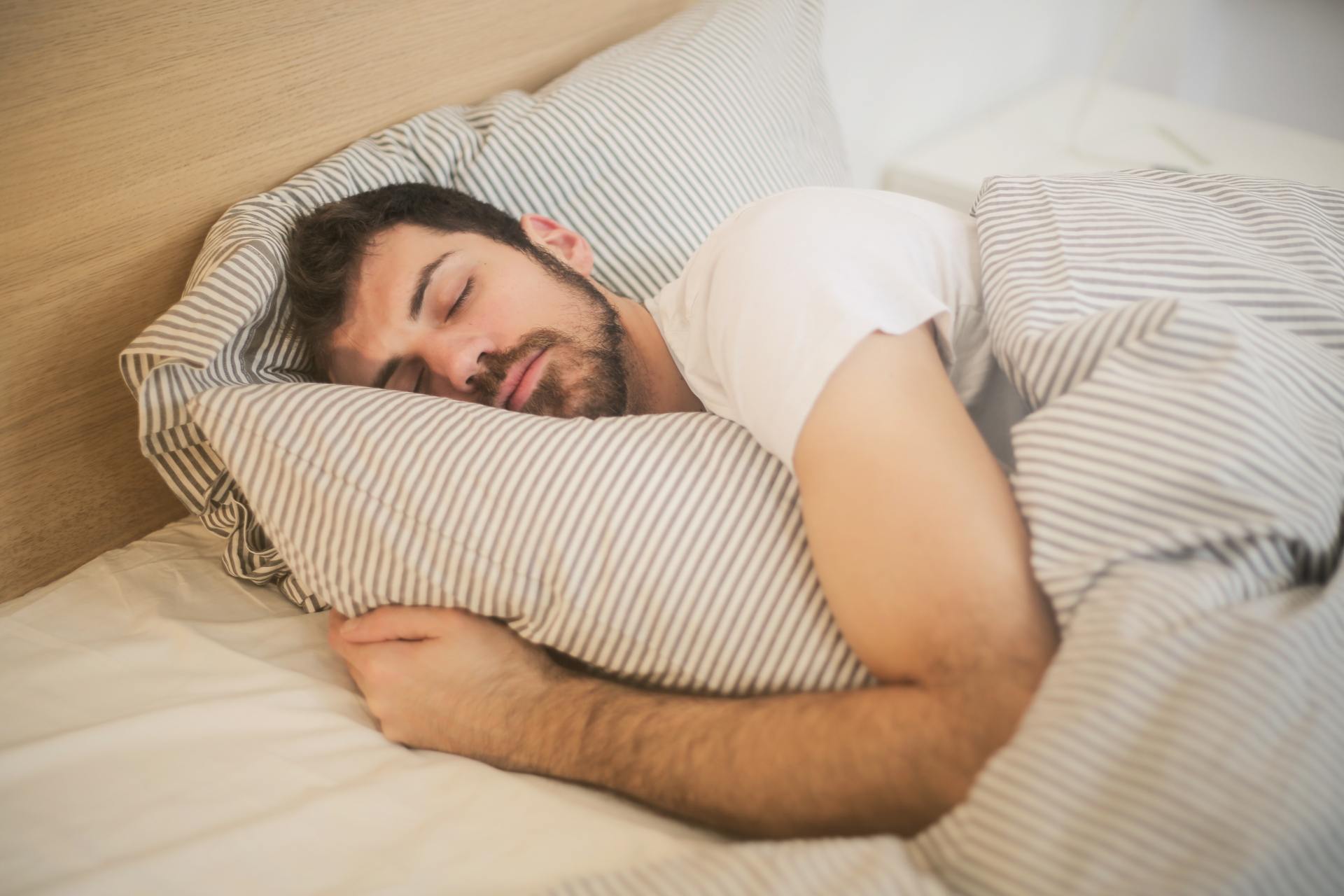Back to Basics: Sleep
Read about sleep in this first blog of our new Back to Basics series.
March 2020

With so much in the news lately about staying healthy, we thought it might be a good time to start a "Back to Basics" series. We'll review different aspects of staying healthy, including the latest scientific thinking, as well as practical ideas for everyday life. We hope that you enjoy and learn from this series. Please feel free to let us know what you think! First topic: sleep.
What do we understand about sleep?
"That we are not much sicker and much madder than we are is due exclusively
to that most blessed and blessing of all natural graces, sleep."
- Aldous Huxley
It turns out that we really don't fully understand sleep. We know the short term effects of not getting enough quality sleep:
- An occasional night without sleep makes us feel tired and irritable the next day. We're also not as alert, we may feel unfocused, and get dark circles under our eyes.
- After several sleepless nights, the mental effects become more serious. It becomes more difficult to concentrate, think clearly, remember things, and/or process information. We're moody and are more likely to have conflict with others. We may doze off during the day and the risk of accidents and injuries goes up.
- If it continues, lack of sleep becomes an important risk factor for serious medical conditions such as diabetes, cardio-vascular disease and hypertension, and obesity. Sustained lack of sleep reduces our immunity to illness, affects our hormones, increases our anxiety levels, and affects our overall health.
We also know the effects of getting sufficient sleep:
- Kids who get a good night's sleep are more likely to show a positive outlook towards school and are more likely to have healthy behaviors such as working to finish tasks started, staying calm and in control when faced with a challenge, etc.
- Deep sleep can decrease anxiety by reorganizing connections in the brain. It seems to be a natural anxiety inhibitor, so long as we get it every night.
- Sleeping well wards off the negative effects of not getting sufficient sleep, as described above.
- When we're well rested, we're able to respond to life with greater perspective and understanding.
"Sleep is the best meditation."
- Dalai Lama
- Dalai Lama
Scientists have several theories of why we sleep (link to Harvard Medical School article), and they continue to study this topic. If you're interested in learning more, the Public Broadcasting Service (PBS) premiered "The Mysteries of Sleep" in February 2020.
So what can we do to get a good night's sleep?
We recognize that many factors can affect the quantity and quality of our sleep: work stress, family responsibilities, travel, unforeseen challenges, etc. While we may not be able to control those factors, we can adopt habits that encourage better sleep. Here are some ideas:
- Stick to a sleep schedule -- go to bed and get up at the same time every day. Try to limit variances in your sleep schedule to no more than an hour. Being consistent reinforces your body's internal clock. If you don't fall asleep within 20 minutes, get up and do something relaxing. Try going to bed again when you feel tired. Repeat as needed.
- Have a bedtime routine -- adopt a relaxation activity or technique before going to bed. For example, reading, taking a bath, listening to music, deep breathing, meditation, gentle stretching, etc.
- Pay attention to what you eat and drink -- don't go to bed hungry or stuffed. Try to avoid heavy or large meals within two hours of bedtime. The stimulating effects of nicotine and caffeine are likely to prevent quality sleep, and while alcohol may make you feel sleepy, it can disrupt your sleep later on in the night.
- Create a restful environment -- cool, dark, and quiet. Avoid prolonged use of light-emitting screens just before bedtime.
- Limit daytime naps -- as they can interfere with nighttime sleep. If you choose to nap, limit them to 30 minutes and avoid napping late in the day.
- Include physical activity in your daily routine -- but not too close to bedtime because exercise stimulates the body to secrete the stress hormone cortisol, which helps activate the alerting mechanism in the brain.
- Use light to your advantage -- natural light keeps your internal clock on a healthy sleep-wake cycle. Let in the light first thing in the morning and go outside during the day for a sun break.
- Manage worries -- try to resolve concerns before bedtime. Jot down worries and put them aside for the next day.
Conclusion
Some of these tips will be easier to include in your daily and nightly routine than others. However, if you stick with them, your chances of achieving restful sleep will improve. We all experience sleepless nights and lack of sleep from time to time, but if this happens too often or regularly, it may be time to consult with your doctor to determine and treat underlying causes.
Please also feel free to speak to us at the pharmacy -- we're happy to help and we want all of our patients and customers to experience the feeling of well-being that consistent, good quality sleep can give.
We wish you a good night!
Brittany Sanders, Pharm.D.
References and further information:
- http://healthysleep.med.harvard.edu/healthy/matters/benefits-of-sleep/why-do-we-sleep
- https://health.clevelandclinic.org/happens-body-dont-get-enough-sleep/
- https://www.nhs.uk/live-well/sleep-and-tiredness/why-lack-of-sleep-is-bad-for-your-health/
- https://www.sleepfoundation.org/articles/your-body-no-sleep
- http://healthysleep.med.harvard.edu/healthy/matters/benefits-of-sleep/why-do-we-sleep
- http://healthysleep.med.harvard.edu/need-sleep/whats-in-it-for-you/health
- https://www.sciencedaily.com/releases/2019/10/191031174650.htm
- https://www.pbs.org/wgbh/nova/video/mysteries-of-sleep/
- https://www.sciencedaily.com/releases/2019/10/191025075604.htm
- https://www.sciencedaily.com/releases/2020/02/200217085214.htm
- https://www.sciencedaily.com/releases/2019/11/191104124140.htm
- https://www.sciencedaily.com/releases/2020/01/200115120626.htm
- https://www.mayoclinic.org/healthy-lifestyle/adult-health/in-depth/sleep/art-20048379
- https://www.mayoclinic.org/healthy-lifestyle/adult-health/in-depth/sleep-the-foundation-for-healthy-habits/art-20270117
- http://healthysleep.med.harvard.edu/healthy/getting/overcoming/tips
- https://www.sciencedaily.com/releases/2020/03/200303155658.htm
- https://www.dietvsdisease.org/prebiotic-foods-fiber/
- https://www.mayoclinic.org/healthy-lifestyle/childrens-health/in-depth/child-sleep/art-20044338
- https://www.health.harvard.edu/staying-healthy/successful-aging-10-tips-for-better-sleep
Special thanks to our friend Dr. Don Martin, who provided inspiration for this post.
Please feel free to let us know if you'd like us to write about a particular topic. You may also like to sign up for our monthly email newsletters (below) where we also write about relevant health-related topics.




